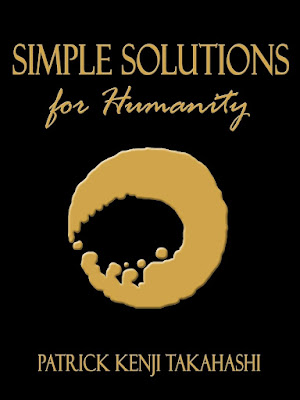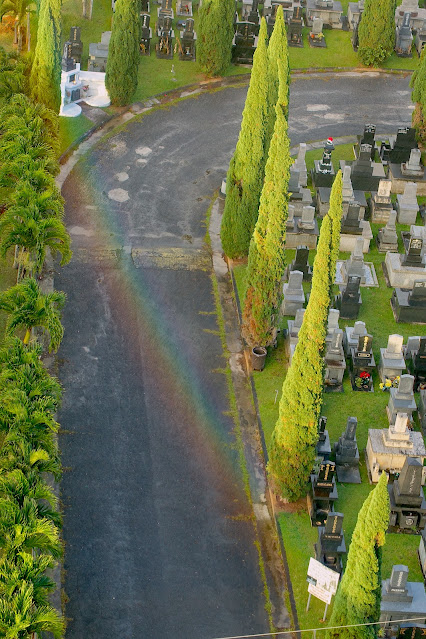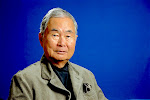PAPUA NEW GUINEA POPULATION: 6,187,591
«  Previous Country | Next Country Previous Country | Next Country  » Back to Flag Counter Overview » Back to Flag Counter Overview |  |
| Background | |
| The eastern half of the island of New Guinea - second largest in the world - was divided between Germany (north) and the UK (south) in 1885. The latter area was transferred to Australia in 1902, which occupied the northern portion during World War I and continued to administer the combined areas until independence in 1975. A nine-year secessionist revolt on the island of Bougainville ended in 1997 after claiming some 20,000 lives. |
Map data ©2012 Tele Atlas -
|  |
| I went to Papua New Guinea more than two decades ago. I almost did not make it out. Here is a blow by blow account of my experience (plus interesting photos representing the country):
My Adventures in Papua New Guinea
(For reasons I don't understand, the right side of this posting was obscured. Should you wish to read this article, just click on Papua New Guinea.)
I traveled to the Independent State of Papua New Guinea (PNG) in 1989, no doubt one of the three most stressful experiences of my life. Most of what follows comes from pure memory, although I do keep files of all my trips, and I did obtain a conference proceedings of why I went there, which was because a professor friend from Michigan convinced me that I should give a talk at his energy conference in PNG, where he had temporarily moved.
To bring you up to date, PNG, located in the southwest Pacific Ocean just north of Australia and south of the equator, has a current population of 5.5 (now up to 6 in 2012) million with 600 islands and the land area the size of California. Port Moresby, the capital, has about a third of a million people and Lae of something just below 100,000. It is a constitutional monarchy, meaning that they recognize the Queen of England as their head of state, with an elected parliamentary democracy, and they mostly deal with Australia. “For each village, a different culture,” is an apt folk saying, as there are some 800 languages spoken. It is rich in natural mineral resources, and could well increase in importance because fossil fuel deposits are yet largely untapped. Interesting that Exxon Mobile and Chevron Texaco abandoned operations there, but I think I know why. Read on. (Actually, as of 2010, they are both back...mostly for natural gas.)
The U.S. State Department now has online security information for Americans traveling abroad. This was not available then. Visitors in 2006 were warned, don’t go to PNG. Many incidents of assaults and robbery occur in Port Moresby and Lae, and individuals are especially at high risk. Golf courses, parks and beaches are to be avoided, as are taxis and buses. (Can you believe I was there when it was worse...much worse?) In May 2006, the Australian government was a bit more descriptive, underscoring that there are high levels of serious crime, especially in Lae. PNG is only #12 in murders/capita (U.S. is #24), and is not in the bottom of 10 of worst countries (#148 of 182 countries) according to the United Nations, but it is not a pleasant place to visit.
It was particularly dangerous in 1989. A rebellion was running rampant on Bougainville Island and there was a series of no confidence votes against the government.
This visit should have taught me a lesson of never going anywhere unless you know where you are going. But there were extenuating circumstances. There was some combination of Nejat Veziroglu and F. Welt involved with the planning for the gathering in Lae, PNG. My original response was, no, sorry, can’t make it, but thanks for asking. But persistence sometimes pays, and at the last moment, as the travel reimbursement seemed unusually attractive, I made a late booking and found myself going through customs at Jackson International Airport in Port Moresby.
As I was picking up my suitcase, I noticed a sign saying, “Don’t enter the country if you have not taken Malaria precautions!” My initial reaction was, whoa, go home. But I had to physically proceed through the process to get out, and the customs official asked me about my visa. Aha, I thought, become an arrogant American and let them kick you out. I had a good excuse, for I did not know I needed a visa. At least I could report to the conference sponsors the “I tried” part. I said, “I am an important speaker from the United States and you must let me through even though I don’t have a visa.” He said, “okay,” and I could not think quickly enough to irritate him any further.
After the hour flight to Lae on Air Niugini, I was picked up at the airport by conference planners. Professor S. L. Hall, Head of the Mechanical Engineering Department at the University of Technology from Australia, was on the plane. She casually mentioned that the president of Papua New Guinea University of Technology in Lae was the brother in law of the current head of state, and there was a move to evict him by the opposition party. At the hotel, over drinks, we were told don’t walk around in town, not even in the daytime. And don’t think of doing that at night. There are marauding packs called Rascals, who are mostly cannibals from the jungle who can’t find jobs in town and must rob and kill to stay alive. I thought they were exaggerating, but no one was smiling.
What really caught my attention, though, was when I mentioned that I had not bothered with malaria precautions and asked, “just how serious was it?” One of them dropped his drink and the others, wide-eyed, expressed alarm. First, Lae is a lot wetter than Port Moresby, and the problem is amplified here. Second, it was too late. Third, those trying to prevent malaria as a resident by taking medication can go blind. However, S.L. (don’t remember her first name) gave me a bunch of pills and said, all things concerned, it might help. I asked one of them about the getting blind part and asked for some details. He said he decided not to take that chance, the blind chance. So, he had malaria.
I went back to my room and only then saw that can of insecticide and black splotches on the wall. I was so exhausted after a flight that took more than 30 hours that I quickly fell asleep.
We were picked up the next morning and taken to the conference, which was held in an open auditorium with a roof. As I was glancing at the program, a strange brown mosquito wafted unto the page. Before I could panic, it flew off somewhere. Just then, the moderator opened the program and mentioned that some of the out of country conferees might be concerned about malaria. He said not to worry, for the only mosquitoes to give you malaria suck you just around sunset. And don’t worry about the male of the species. He was trying some humor. I later learned that there are various anopheles varieties capable of inflicting this disease, and they sort of look like those found in Hawaii.
I made one of those command decisions, and this time, to be smart and decisive about it. I remembered that someone in my family was sick with something more serious than a cold and went up to my friend the organizer, F. Welt, and said that I noticed my talk was to be at the banquet two days away. Unfortunately, there was a sickness in the family and I had to leave first thing tomorrow, so could I give my talk today. This was not an outright lie, but close. After some anguishing and discussions, we agreed on my presenting my message at the morning session the next day so I could catch a noon flight to Port Moresby and connect to a Quantas flight to Brisbane. He would be glad to make the adjustments for me. It was difficult for me to disagree with this kind of cooperation. So I was stuck at least a second night.
The foreign guests were invited to dinner at one of the professor’s home after the end of the meetings that day. We dawdled around for a while and walked to his residence. He was not there. No one was there. After waiting for an hour, I noticed that dusk was approaching, and imagined that those malaria mosquitoes were readying themselves for their evening meal. Then the family returned with groceries. Waiting outside did not matter much because the home was open to the elements. At some point a siren sounded and the local staff began to exhibit a high sense of anxiety. Finally, a phone call came and we were “reassured” that the problem was that students advocating the fall of their university president had invaded the faculty club and had stolen all the liquor. In addition, there was a riot in town and those with hotel rooms there were told to remain overnight at this home. The campus was a barbed-wire enclosure, not unlike a jail.
Unexpectedly, at about 10 PM, a government official showed up in an open air jeep and said that he would take S.L. and me back to the hotel. They were more apprehensive about her, being female. I asked, what about those rioting protesters, and he said he thinks we’re covered, as he had a case of beer in the back and if a group attacks us, we give them the beer. He was serious. But we made it back without incident.
The next morning, I gave my talk and was rushed to the airport. The plane was late. I was worried about the connecting flight, for if we left at noon, the 1:30 connecting flight time seemed awfully close. The uneasy state of politics was such that this was to be the last plane out of New Guinea that day. I was told that on Fridays (which it was) those who worked get paid, and become drunk and dangerous. Whatever happens, they said, don’t get stranded at the airport.
Finally at 12:30 PM the plane came and immediately left with me. We landed at Jackson at 1:35 and that Quantas plane was still there. I grabbed my luggage and began running to the plane…but was told I first had to go through customs. Well, it took a long time to clear, as first, they wondered about my visa. Finally, finally, I was allowed to board the flight. It turned out the airline was waiting just for me, and till today, I have joyful feelings about Quantas. Brisbane (photo below) is, maybe, among the most boring cities in the world. Those three days there were about the best I spent anywhere in my life. This is part of the reason why Australia is way up there as among the best places to live. However, scratch PNG from the list.
|





































